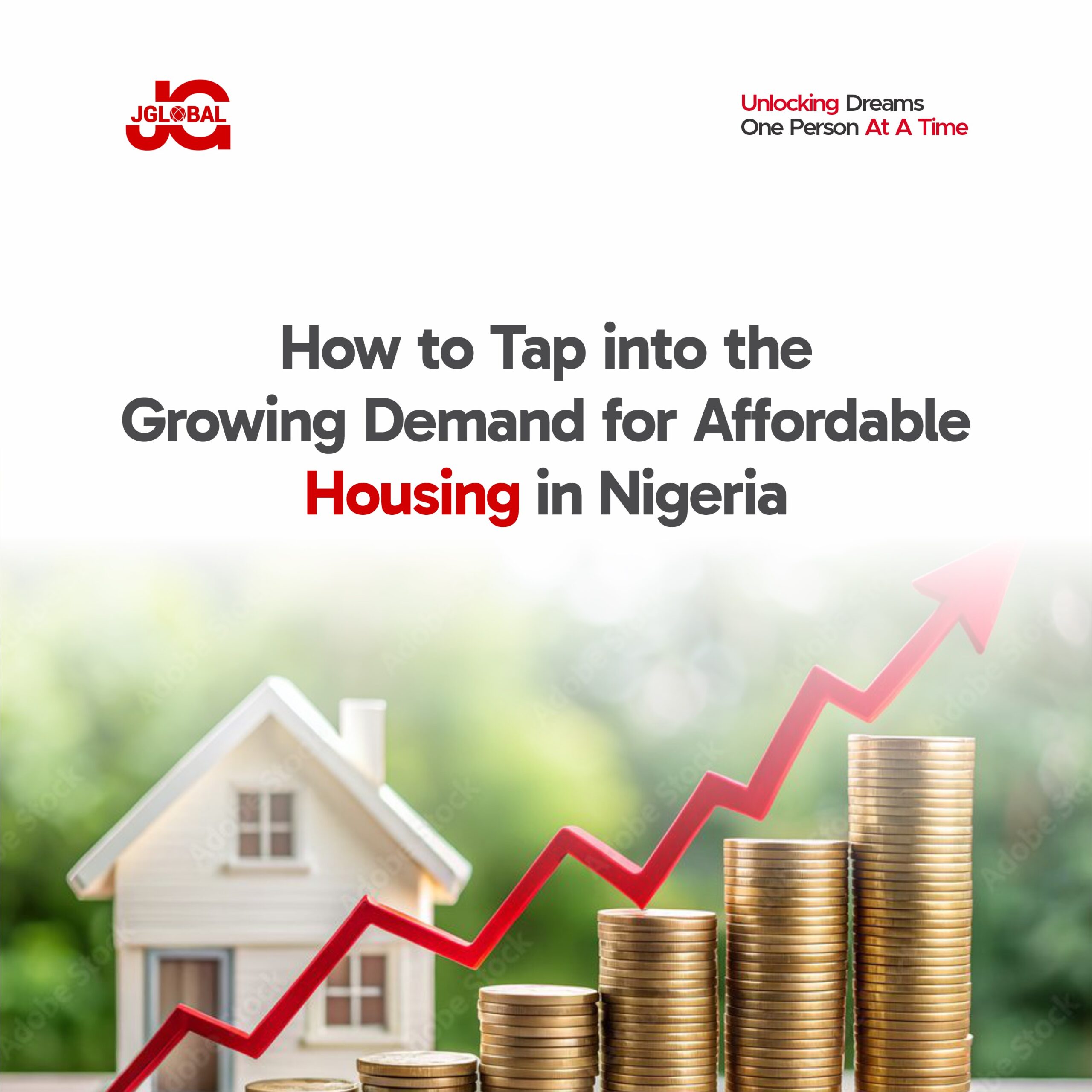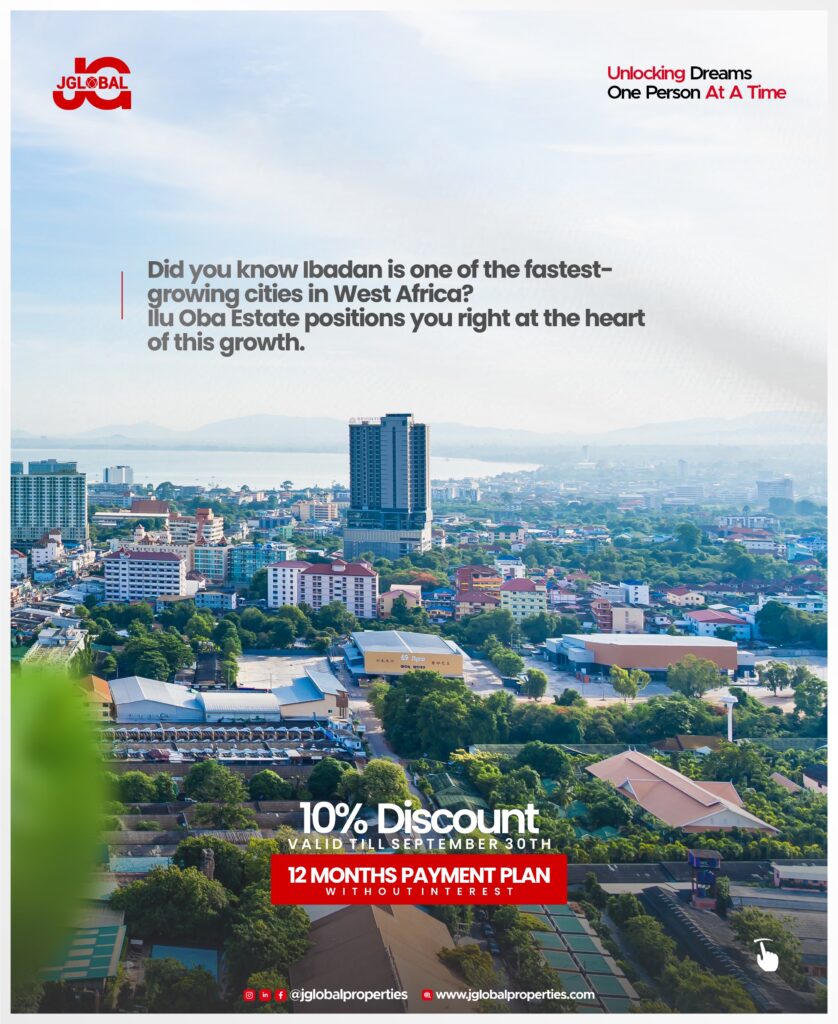How to Tap into the Growing Demand for Affordable Housing in Nigeria

If you’ve been paying attention, you’ll notice one thing: the demand for affordable housing in Nigeria keeps rising, and it’s not slowing down anytime soon.
From Lagos to Ibadan, Abuja to Port Harcourt, people are moving into cities in search of jobs, schools, and better opportunities. But while the number of people keeps increasing, the number of affordable homes is nowhere near enough. That’s why smart investors, developers, and even everyday landowners are asking the same question: how do I tap into this growing demand?
According to ThisDay, Nigeria has a housing deficit of 22 million homes today.
Think about it, 22 million families already need a roof over their heads and even if Nigeria built 1 million houses every single year (which we’re not), it would still take over 20 years to close the gap. By then, demand will have increased further, leaving us chasing shadows.
Population growth makes the issue even sharper:
- Nigeria’s population will hit 262 million by 2030 (Intelpoint)
- By 2050, we’re looking at around 400 million people
- Lagos alone is projected to reach 24–30 million people by 2030, making it one of the largest cities in the world
In economics, when supply can never meet demand, prices rise. That’s why Nigerian property keeps appreciating not necessarily because developers are smart, but because scarcity is permanent, and scarcity equals profit.
Here are ways to Tap Into the Growing Demand for Affordable Housing in Nigeria
- Understand the Market
To tap into this affordable housing opportunity, you need to know what Nigerians are really looking for. It’s not luxury apartments with sky-high rents. It’s safe, accessible, affordable homes.
The average working-class family or young professional doesn’t want to pay ₦3m yearly for rent, they’re looking for homes they can own or rent without draining their entire income.
- Start Small with Affordable Housing Projects
As a developer, you don’t have to start with skyscrapers or big estates in Ikoyi, GRA in Port Harcourt or Abuja. You can start small:
- Build 2–3 bedroom bungalows in suburbs like Mowe, Igwuruta, or Moniya.
- Focus on quality but affordable materials.
- Offer flexible payment plans so families can spread costs over time.
Remember, affordable housing is not about cutting corners, it’s about designing smartly and cutting waste.
- Invest in Land Early
Land banking is one of the smartest strategies in Nigeria today. Buy land in emerging areas before infrastructure arrives.
When the government builds a road or announces a new project nearby, land prices shoot up, and developers rush in.
This allows you to sell to developers who need land for affordable housing projects, or partner with them to build.

Here is an opportunity in Ibadan for you to invest in land early.
- Explore Public-Private Partnerships
The government knows the housing deficit is a crisis. That’s why they often create policies or partnerships to encourage developers.
Look out for schemes under the Federal Ministry of Housing and Urban Development that support affordable housing.
By leveraging these policies, you can get land at subsidized rates, access financing, or benefit from reduced taxes.
To understand Public-Private Partnerships read this article.
- Offer Rent-to-Own Options
One of the biggest barriers to affordable housing in Nigeria is the lump sum required upfront. Many can’t pay ₦10m–₦20m at once, but they can pay monthly like instalment.
Rent-to-own models solve this problem. Families move into homes while gradually paying towards ownership.
For developers, it guarantees steady cash flow. For families, it makes home ownership possible.
- Leverage Technology
Platforms like Proptech startups are now helping Nigerians pool funds, buy land collectively, and even manage fractional ownership.
Tapping into these innovations lets you reach a wider audience who are eager but financially constrained.
Conclusion
The Nigerian housing market is a goldmine but only if you understand the demand.
Affordable housing is not just a need; it’s a necessity.
With a 22 million home deficit and a population heading towards 400 million by 2050, the demand for housing will always outpace supply.
The smart move is to position yourself now—be it through land banking, affordable housing projects, or creative financing options.
Because in Nigeria’s real estate market, one thing never changes: scarcity is profit.
Jglobalproperties.com is always ready to help with your real estate goals.



